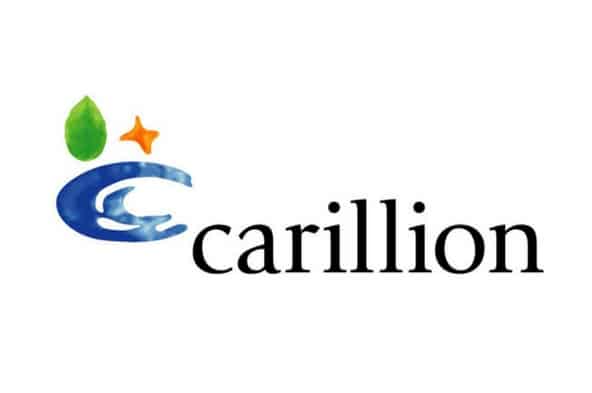What to Do if You Can’t Pay Company Debts
Excessive debt is a common problem for distressed, struggling businesses. If your business is heavily indebted and you can’t afford to pay your creditors, it’s important that you take action to put your business in the best possible position going forward.
If you can’t afford to pay your company debts, a variety of options are available. Depending on the viability of your business, you may be able to:
- Access financing to pay your creditors
- Propose a company voluntary arrangement (CVA) to your creditors
- Enter into administration
- Use pre-pack administration
- Initiate a creditors’ voluntary liquidation (CVL)
- Close your business via compulsory liquidation
Below, we’ve explained how these processes work and provided more information to help you choose the best option for your business.
Can’t Pay Company Debts: The Basics
If your business is heavily indebted and you believe there’s no prospect of financial recovery, it’s important that you cease trading right away. You’ll also need to inform your creditors and HMRC that you’re no longer actively trading.
As a company director, you could be charged with wrongful trading if you continue trading after you become aware that your business is insolvent.
If you’re concerned that your business may be insolvent and that recovery is impossible, contact us. Our qualified insolvency practitioners can provide expert advice on the best course of action to protect your business and yourself as a company director.
Your Options After Ceasing Trading
After you’ve ceased trading, a variety of options are available to you. These range from seeking financing to continue running your business to proposing a CVA, entering into administration, or liquidating your business.
Financing
If you believe that your business is viable, you may be able to access financing to pay creditors and resume trading.
A variety of financing options are available for distressed businesses. Depending on the current state of your business, you may be able to access financing using one or several of the options listed below:
- Invoice discounting and/or factoring. If your business is indebted but has consistent, reliable cash flow from existing customers, you may be able to use invoice discounting or factoring to generate cash flow and pay creditors.
- Secured loans. Accessing unsecured credit is extremely unlikely if your business has poor credit. However, if your business has assets, such as real estate or equipment, you may be able to obtain a secured loan.
Financing for heavily indebted businesses can be costly. However, if your business is viable, it may be the best option for paying your creditors and allowing your business to return to active trading.
Company Voluntary Arrangement (CVA)
A company voluntary arrangement, or CVA, is an arrangement between your business and its creditors that allows you to negotiate new terms and resume trading while remaining in control of your business.
A CVA protects your company against legal action from creditors and stops any pressure from HMRC. If your creditors agree to a CVA, your debts will be bundled into one monthly payment, simplifying the repayment process as you focus on recovering your business.
A CVA can be a great option for an insolvent but viable business. However, not all businesses can enter into a CVA. If your business isn’t viable and recovery is unlikely, your creditors may not agree to your CVA proposal.
Entering Into Administration
The administration is a formal procedure in which the administration of your company is handled by an insolvency practitioner. During the administration process, your business will be protected from legal action from creditors while the administrator works to turn the business around.
Entering into administration is often a good option for insolvent businesses that face pressure from creditors. If it’s considered a suitable option, the administrator may propose a CVA.
Administration can be a good option for some businesses. However, it isn’t suitable for every business and can involve significant costs. As such, it’s important to talk with an experienced insolvency practitioner before considering administration for your business.
Pre-pack Administration
Pre-pack administration is a formal procedure in which your business arranges to sell its assets before entering into administration.
Many pre-pack administrations involve the sale of assets to a new company — commonly known as a “newco” or “phoenix company”. This new company can be owned by the existing directors, allowing trade to continue with jobs and asset value preserved.
As with other insolvency procedures, pre-pack administration isn’t ideal for every business. An insolvency practitioner can help you learn more about the options available to you and, if it’s a viable solution, assist with the pre-pack administration process.
Creditors’ Voluntary Liquidation (CVL)
A creditors’ voluntary liquidation, or CVL, is a form of voluntary liquidation in which a business voluntarily ceases trading and liquidates its assets.
Entering into a CVL may be the best option if your business is insolvent and no longer viable, meaning it’s incapable of paying it debts and becoming profitable in the future. In a CVL, all company assets will be liquidated in order to repay creditors.
If your business is solvent and viable, a CVL is not a suitable way to liquidate the business’s assets. This type of business should be closed down using a members’ voluntary liquidation (MVL) instead.
Compulsory Liquidation
If your business is insolvent and taken to court by its creditors through a winding up petition, the court may decide that the business is to be wound up, or liquidated. Any business assets will be sold by a liquidator in order to pay creditors.
Unlike in a voluntary liquidation, you will not maintain any control over the liquidation process as the business’s assets are sold.
As a company director, your conduct will be investigated by the official receiver (OR) during the liquidation process. If you acted illegally, you may face charges, be held personally liable for any company debts, or be disqualified from serving as a director to other companies.
Which Option is Best for You?
Every business is different, meaning the best option for your business depends on a wide range of factors. If your business is still viable, using financing or entering into a CVA, administration or pre-pack administration may be the best option for relieving pressure from creditors.
If your business is no longer viable, you may benefit from voluntary entering into the liquidation process to close the business and repay its creditors.
As insolvency practitioners, we can provide expert advice to help you make the best decision for your business. If you’re struggling with company debts and don’t know what you do, our experts can inform you about the options that are available and help you move forward.
We’ve helped hundreds of UK company directors in a wide range of industries. To discuss your situation and learn more about what you can do, contact us now on 0161 8719 842 or send us an email to schedule your free private consultation.



